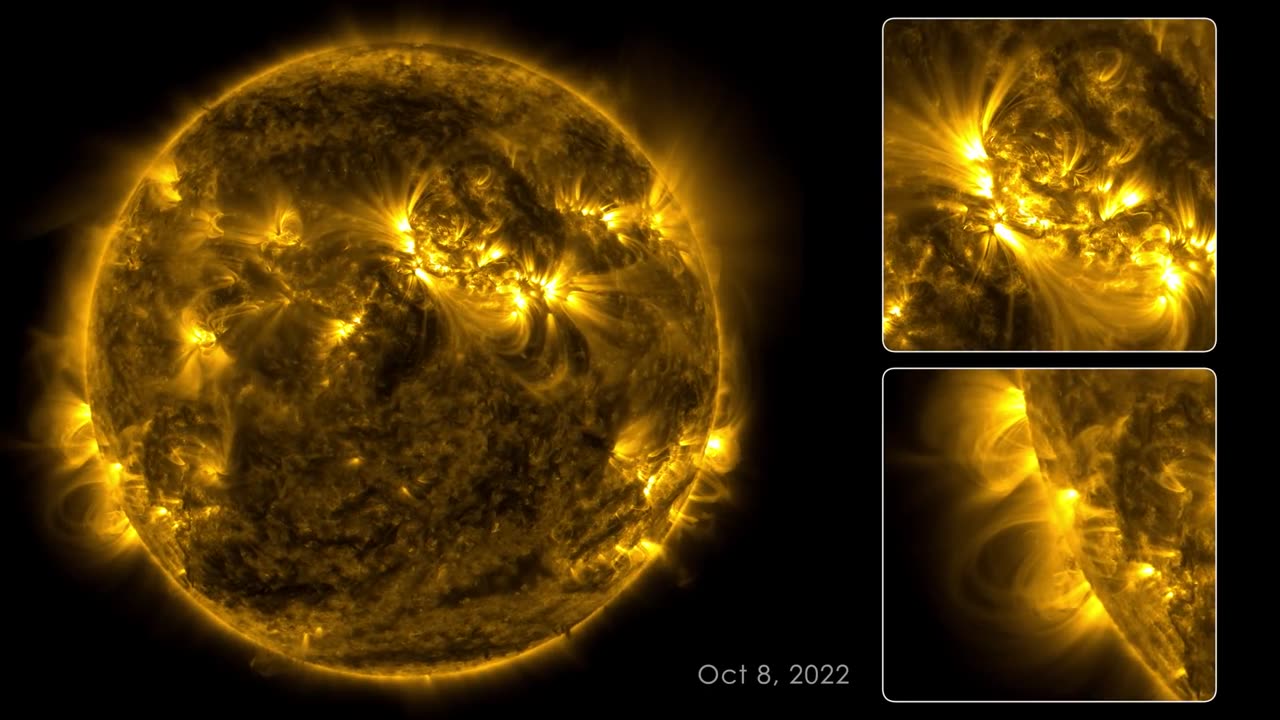Premium Only Content

NASA's New Horizons: Exploring the Cosmos and Earth's Frontiers Part -3
NASA's New Horizons Exploring the Cosmos and Earth's Frontiers" represents a comprehensive approach by NASA, where they strive to explore both the vast expanse of the cosmos and the intricate dynamics of our own planet, Earth.
Cosmic Exploration: This part of the initiative signifies NASA's unending quest to explore the cosmos beyond our world. It encapsulates the agency's pursuit of new horizons in space exploration, including missions to study distant celestial bodies, phenomena, and cosmic processes. As an astronomer, I'm particularly excited about NASA's role in advancing our knowledge of the universe, from sending missions to observe distant galaxies and understand the early moments of the cosmos to exploring distant planets and their moons.
Understanding Earth: While astronomers typically focus on celestial objects, it's crucial to recognize that our planet is also a part of the cosmos. NASA's efforts to explore Earth's frontiers encompass studying the Earth's atmosphere, climate, geology, and ecosystems from a scientific perspective. As an astronomer, I appreciate NASA's role in providing valuable data and insights into Earth's environmental changes and the global challenges we face.
Interdisciplinary Synergy: "NASA's New Horizons Exploring the Cosmos and Earth's Frontiers" underscores the interconnectedness of these two domains. It highlights how insights gained from studying the cosmos can have implications for Earth science and vice versa. For instance, the study of exoplanets can inform our understanding of Earth's climate, and Earth observation can provide insights into planetary processes.
In summary, this concept represents NASA's holistic approach to scientific exploration, recognizing that our pursuit of knowledge extends not only to the far reaches of the universe but also to our own home planet. It acknowledges the synergy between space exploration and Earth science, showcasing NASA's dedication to advancing our understanding of both the cosmos and Earth's complex systems.
-
 LIVE
LIVE
Kim Iversen
3 hours agoTrump Attacks Thomas Massie—But MAGA Isn’t Having It! Is Trump Picking the Wrong Fight?
1,813 watching -
 56:31
56:31
Glenn Greenwald
2 hours agoUNLOCKED EPISODE: On Europe’s Emergency Defense Summit, the Future of Independent Media, Speech Crackdowns and More
8.36K20 -
 43:48
43:48
BonginoReport
3 hours agoMainstream Media Plots The Next Plandemic! (Ep.02) - 03/11/2025
58.3K191 -
 1:13:13
1:13:13
Michael Franzese
3 hours agoMegyn Kelly’s UNFILTERED Take on The Ukraine War, Trump & Modern Masculinity
23.8K15 -
 1:43:21
1:43:21
Redacted News
4 hours agoBREAKING! UKRAINE AGREES TO CEASEFIRE WITH RUSSIA... BUT THERE'S A BIG CATCH | Redacted News
137K224 -
 58:17
58:17
Candace Show Podcast
5 hours agoShould We Feel Bad For Blake Lively? | Candace Ep 157
90.8K138 -
 3:06:52
3:06:52
The Nerd Realm
6 hours ago $10.76 earnedHollow Knight Voidheart Edition #19 | Nerd Realm Playthrough
58.1K4 -
 1:17:27
1:17:27
Awaken With JP
8 hours agoThe Current Thing: Tesla Protesting - LIES Ep 82
86.9K38 -
 1:07:08
1:07:08
Sean Unpaved
5 hours agoNFL Free Agency Rolls On! MLB Spring Training Heats Up along with 3x World Series Champ Dave Stewart
51.1K3 -
 2:10:15
2:10:15
Right Side Broadcasting Network
10 hours agoLIVE REPLAY: White House Press Secretary Karoline Leavitt Holds Press Briefing - 3/11/25
141K41